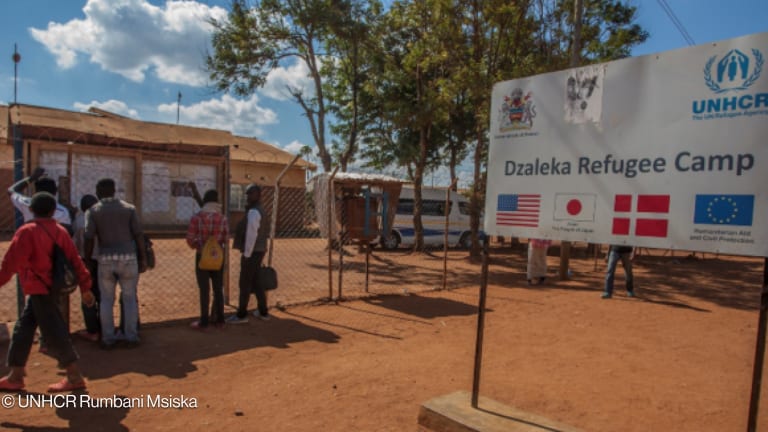
The European Union has announced 209 million euros ($245 million) of emergency support to help house and integrate refugees in Greece, following reports of “appalling” living conditions in its camps.
The announcement last week includes the launch of a new flagship program that will help refugees rent accommodation in cities and provide them with cash assistance, in partnership with the United Nations High Commissioner for Refugees.
The news represents a shift in strategy from previous humanitarian support in Greece, which has focused on accommodation in refugee camps and the provision of direct supplies.
Announcing the commitment, the European Commission's head of humanitarian aid and crisis management, Christos Stylianides, said: “Our new funding is a game changer on how we deliver aid to improve people's lives. The aim of these new projects is to get refugees out of the camps and into everyday accommodation and help them have more secure and normal lives.”
“Together with our humanitarian partners and the national authorities, we are committed to helping the most vulnerable refugees and fulfilling our humanitarian duty in the move towards a more cost-effective response.”
See more related topics:
► In Greece, lack of legal aid leaves migrants and refugees guessing
► Debating the rules: What in-house refugee costs count as aid?
► Europe's risky experiment: Can aid be used to deter migration?
► Why Bulgaria is at odds with its own refugee integration law
Greece has faced heavy criticism over the past year about the state and cost of its refugee camps. Amnesty International released a report last year that described conditions as “appalling” and said that refugees living there faced “immense and avoidable suffering.”
A later report from the Refugee Rights Data Project documented a lack of medical and sanitary facilities and waterproof shelter in Greek camps, as well as reports of deaths from violence, disease and suicide. It concluded that “ineffective EU policies have forced a situation in Greece in which tens of thousands of refugees are trapped in difficult conditions in a country that lacks the asylum and humanitarian infrastructure necessary to manage such a caseload.”
The criticisms have come despite the camps receiving more than five times the amount of funding per capita from the United Nations 2016 Inter-Agency Appeal than those in Lebanon and Egypt, The Guardian reported, as well as an unprecedented amount of funding from the EU. Aid workers said this was due to the higher costs of operating in Europe, but also government inefficiencies and an uncoordinated response.
The new funding commitments will come from the EU's Emergency Support Instrument, which was launched in March 2016 to support humanitarian assistance within EU territories, with a focus on countries affected by a high number of refugee and migrant arrivals. Greece previously received 192 million euros ($225 million) of support from the instrument last year.
The new flagship program — Emergency Support To Integration & Accommodation — includes 93.5 million euros ($110.5 million) to establish a large-scale rental project, with the aim of providing homes for 22,000 refugees in apartments in cities and towns, mostly on the Greek mainland, as well as some on the islands.
It also includes 57.6 million euros ($68 million) to provide asylum-seekers and refugees in Greece with a monthly cash allocation, paid through a dedicated card. The EU said in a statement that it “aims to enable refugees to meet their basic needs in a dignified manner” and that the allocations would be “consistent across the country, and pegged to the Greek emergency social safety net, as well as being based on the refugees' family size.”
The rest of the money will go to humanitarian NGOs to support existing projects covering shelter, primary health care, psychosocial support and education.
More than a million people have transited through Greece since the start of 2015; and it is estimated that more than 60,000 refugees are still in the country.
In total, the EU has mobilised over 1.3 billion euros ($1.5 billion) of support until 2020 to help Greece manage migration.
It also recently promised an additional 35 million euros ($41 million) for migration management in Italy, after the country threatened to close its ports to humanitarian boats carrying refugees and migrants rescued from the Mediterranean Sea.
Read more international development news online, and subscribe to The Development Newswire to receive the latest from the world’s leading donors and decision-makers — emailed to you free every business day.








